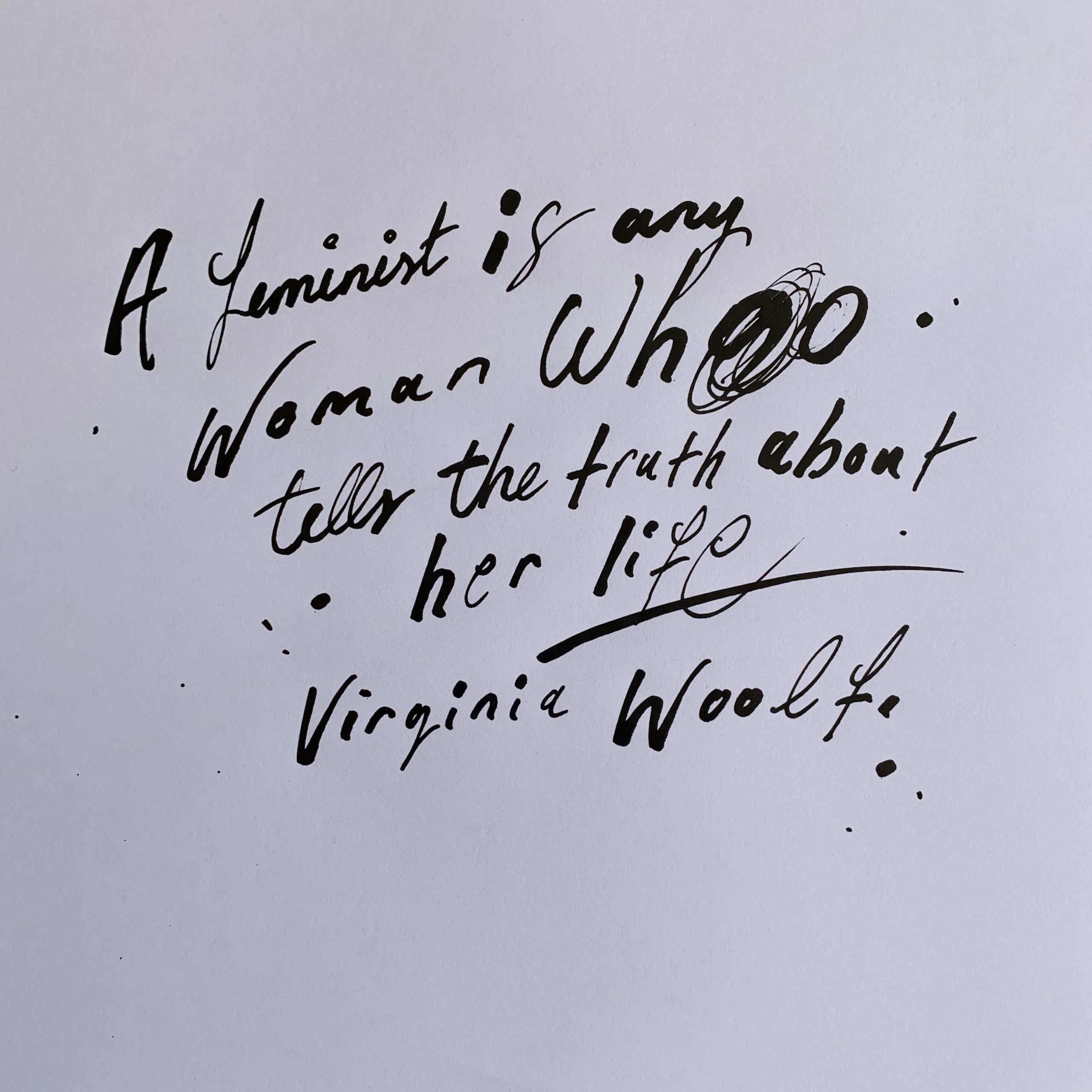Lockdown and the enforced slowing down has afforded us a rare luxury to question things taken as ‘normal. It has thrown up interesting debates and it has highlighted many areas of our society that needs to do better. I have found that my desire to write and express myself has increased, as has my curiosity in areas that I feel are failing within our society. I have always had an interest in feminism, learning from and about women is essential to further ones own journey and education. As a woman I have experienced varying levels of sexism and when talking about my experiences I have found that too often my voice is dismissed, ridiculed and belittled. I have found myself ‘holding my tongue’ in the past for fear of the repercussions of speaking, for being dismissed, for being made to feel that my opinion is inadequate. The older I become the more my confidence grows in expressing my opinions and my own individual ability to project my voice. I am also a mother to 2 daughters, their well being is so important to me that the idea of them being held back because of their sex is infuriating. My son is not immune in this, I feel the pressure to bring him up as a well rounded man – someone who will respect and honour the women around him. To see, believe and live like he and his sisters are true equals.
Women have always been brought up amongst fear: fear of being misunderstood, of being misheard, of being misrepresented and mistreated. We are brought up to fear going out alone in the dark, from an early age we are taught to fear predators, manifesting themselves as both physical and online threats. This encouragement of fear leaves us fearing for ourselves, to fear being a woman. It perpetuates an unconscious and ingrained belief that we are weaker, submissive and need protecting in some way. Why do we have this belief system? Who is peddling it? To whom’s advantage is this construct beneficial?
The feminist arena is huge and I can not explore with any where near enough detail what I would like to in just one blog post, so I have decided to write an entire series about inherent social sexism, the patriarchal system that perpetuates it and the gaslighting that women are subjected to through our media. I want to explore the reasoning behind this and ask if it is to keep us divided. I want to explore why women are represented in a certain way online and in the media, why are we encouraged to live superficially and then berated for it? Why are we still undervalued in the work place? Why are our wages less? Why are we not ‘seen’ as right for certain roles? Why is it that we are seen purely for our sexuality and yet our sexuality is seen as a negative?
I hope that by exploring our cultural inequalities it can break the how’s and the why’s, I hope to educate myself and further my own journey into feminism, I in turn want to share these lessons with others. I hope also that it can create a forum for conversation and honest discussions. There will be several people that do not understand just how difficult it is being female, there will be several people that dismiss sexism as something past tense, that is no longer an issue worthy of debate. Speaking, sharing and educating is the only way to implement change and create a brighter more equal future for our children. I hope you enjoy my series.

Black feminism argues that sexism, class oppression, and racism are inextricably bound together. Forms of feminism that strive to overcome sexism and class oppression but ignore race can discriminate against many people, including women, through racial bias. The Combahee River Collective argued in 1974 that the liberation of black women entails freedom for all people, since it would require the end of racism, sexism, and class oppression. One of the theories that evolved out of this movement was Alice Walker’s Womanism. It emerged after the early feminist movements that were led specifically by white women who advocated social changes such as woman’s suffrage. These movements were largely white middle-class movements and had generally ignored oppression based on racism and classism. Alice Walker and other Womanists pointed out that black women experienced a different and more intense kind of oppression from that of white women. Angela Davis was one of the first people who articulated an argument centered around the intersection of race, gender, and class in her book, Women, Race, and Class. Kimberle Crenshaw, a prominent feminist law theorist, gave the idea the name Intersectionality while discussing identity politics in her essay, “Mapping the Margins: Intersectionality, Identity Politics and Violence Against Women of Color”.